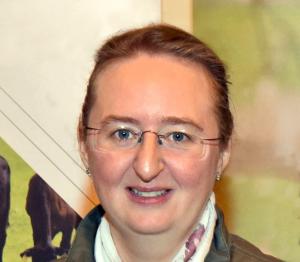An independent report assessing the carbon intensity of all UK livestock production systems has identified that currently available technologies cannot deliver even half the industry’s 2050 carbon emissions reduction goal. Indeed the report states that the industry can only deliver 19% of the aspirational carbon reduction target by 2035, leaving an 81% reduction to happen in the following 15 years highlighting the urgent need to advance technologies.

Call to action
Dr Elizabeth Magowan, from the Agri-Food and Biosciences Institute (AFBI) coordinated the report and says the intention is for it to be used as a baseline to drive change throughout the livestock supply chain.
“The report should be used by all parties to complement the good work already being carried out elsewhere in the sector. It is a call to action. While the industry is making steps in the right direction, the ambition to achieve the UK’s target is huge and known technologies and practices can only get us part of the way. The report concludes that a combination of greater investment (resources, intellectual capital and financial), improved carbon accounting and education resulting in adoption, are required for the UK livestock industry to achieve its net zero carbon goal within the next 30 years,” she concludes.
Commissioned by CIEL (Centre for Innovation Excellence in Livestock) and written by environmental, climate and livestock scientists from eight renowned UK research institutions including the Institute for Global Food Security at Queen’s University Belfast, the ‘Net Zero Carbon & UK Livestock Report’ will be used to inform the debate about climate change and the role livestock can play to reduce emissions that contribute to global warming.
“The report represents a widely agreed summary of the current research available on greenhouse gas emissions from the main farmed livestock species in the UK - with interpretation and a number of recommendations from leading livestock, environmental and climate scientists,” says Lyndsay Chapman, CIEL Chief Executive.
“We wanted the report to review current knowledge and identify areas where there are gaps in our ability to measure or achieve the target reductions in emissions set for UK agriculture. We also wanted to provide benchmarks for the carbon footprint of farmed livestock, hotspots where the greatest emissions occur and where there are opportunities to focus future efforts to reduce emissions.”
The need for innovation
Lead scientist, Professor Bob Rees, from Scotland's Rural College (SRUC), stresses the need for new innovations to further reduce emissions beyond the levels that currently known mitigation strategies will deliver.
“The report has identified that even if all known methods for mitigation of carbon emissions were taken up rapidly, the industry could only deliver 19% of the aspirational carbon reduction target by 2035, highlighting the urgent need to advance technologies and develop new innovations to address this critical issue,” he says.
“Livestock farming is an integral part of UK agriculture, our landscape and food systems, but it’s a complex system involving flows of carbon, nitrogen, water and atmospheric gases.
“In order to help balance the reduction in emissions with the production of high-quality nutritious food, a combination of strategies is needed. These must consider all dimensions of sustainable agriculture including carbon efficiency, soil health, animal health and welfare, and much more.
“And for that we need more innovation, collaboration and widespread adoption,” he adds.
Notes to editors:
AFBI is an arms-length body of DAERA delivering research and development, diagnostic and analytical testing, emergency response capability and expert scientific advice for DAERA and other government departments, public bodies and commercial companies in Northern Ireland, and further afield.
AFBI’s Vision is “Advancing the Local and Global Agri-Food Sectors Through Scientific Excellence”.
AFBI’s core areas:
- Leading improvements in the agri-food industry;
- Protecting animal, plant and human health;
- Enhancing the natural and marine environment.
CIEL (Centre for Innovation Excellence in Livestock)
CIEL is one of the UK’s four Agri-Tech Centres established as a key pillar of the government’s Agri-Tech Strategy.
CIEL works in partnership with 12 of the UK’s leading livestock research institutions and a network of industry members spanning the entire food supply chain, from pre-farmgate to retail. CIEL aims to use these collaborative partnerships to enhance and accelerate business-led innovation, as well as inspire and identify opportunities that could lead to the development of new products, services and techniques that can benefit the entire agrifood chain.
CIEL has one of the world’s leading livestock research alliances, working with over 800 expert animal scientists. Over the past five years, CIEL, through support from Innovate UK and in collaboration with our research partners, has invested £70 million into innovative UK livestock research facilities.
Find out more: www.CIELivestock.co.uk Twitter @CIELivestock1
The Institute for Global Food Security (IGFS) at Queen’s University Belfast is one of the Belfast university’s four global research institutes, established to help meet the needs of society by providing targeted, interdisciplinary research in partnership with industry, regulators and other partners
Net Zero Carbon & UK Livestock Report: To view the full report, visit https://www.cielivestock.co.uk/net-zero-carbon-and-uk-livestock/
Latest news
- AFBI issues Nematodirus warning – Spring 2025 11 April 2025
- Managing Nature Based Risks to the UK Economy and Opportunities for Green Finance 08 April 2025
- AFBI Hillsborough host AERA committee 27 March 2025
- The Omics Days Conference 27 March 2025
